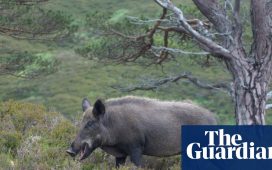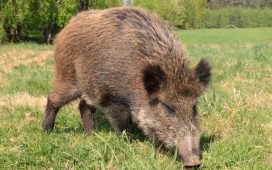
Antarctica’s only native insect could provide inspiration for how humans could travel into deep space.
The tiny midge called Belgica antarctica manages to live in the freezing continent by essentially switching itself off for the coldest seasons, researchers say.
This could hold clues for humans about subjects like cryopreservation, when living things are frozen at very low temperatures far below zero, to come back to normal life again in future.
This might be helpful if we ever get to Mars and then onwards into deeper space beyond our our solar system.
The concept of freezing humans like this featured in science fiction films such as Alien, where crew had to enter tube-like ‘Hypersleep’ chambers after showering to survive lengthy journeys.
Cryopreservation is already used for some tissue, such as embryos used in IVF.
But while it is possible for cells, we are far from ready to revive frozen human beings.

The article in Nature’s Scientific Reports tells how the frozen midge larvae ‘readily survived 32 days of simulated overwintering’.
An international research team, led by scientists at Japan’s Osaka Metropolitan University, found that the flightless midge naturally deals with the seasons during its two-year life cycle by undergoing ‘quiescence’ in its first year and ‘obligate diapause’ in its second.
These are essentially dormant periods when the weather is too cold to function.
The first period comes in immediate response to adverse conditions, and when conditions improve, the organism becomes active again.
Its second quiet period comes from within, when it reaches a fixed point in its life cycle.
This allows the midges to emerge as adults at the same time period, when summer arrives.
Dr Mizuki Yoshida said: ‘As adults, they have only a few days of life and need to find a mate, so this timing mechanism is key to their survival.’
Professor Shin Goto said: ‘We determined that for the Antarctic midge obligate diapause ends with the onset of low temperatures in winter so that the larvae all pupate at the same time and emerge as adults at the same time.’
He added that although such adaptations aren’t known to occur in other creatures, ‘we believe that insects inhabiting harsh environments such as the Arctic and high altitudes might be employing similar strategies.’
They reared midges over a period of six years to find out some of their environmental coping mechanisms, and work out how other species might be able to survive in extreme cold.
Get in touch with our news team by emailing us at webnews@metro.co.uk.
For more stories like this, check our news page.
MORE: Google Calendar removes cultural holidays including Pride and Black History Month
MORE: NASA makes emergency decision over ‘city-killer’ asteroid heading for Earth
MORE: These are the best places to see the Northern Lights in the UK this week













